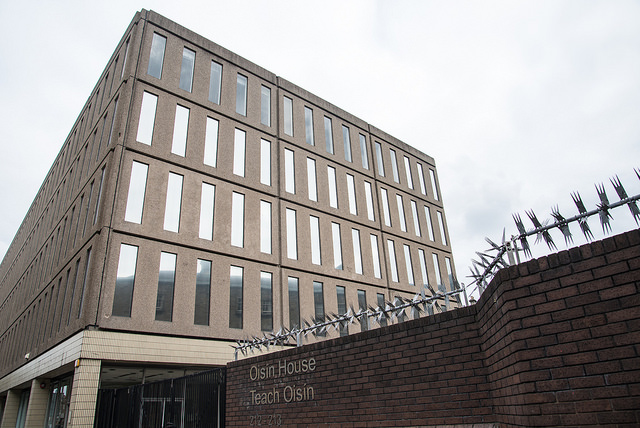Trinity has received verbal confirmations that no objections have been made to Dublin City Council before the deadline for submissions regarding Trinity’s redesigned 250-bed Oisín House accommodation project. The original design had been denied permission in July.
The Dean of Students, Prof Kevin O’Kelly, confirmed in an email to The University Times that no objections were made to the project by the deadline, January 16th. “What has happened is that An Bord Pleanála verbally confirmed to us that no objections were submitted by the deadline”, O’Kelly wrote.
An Bord Pleanála will now inform Dublin City Council of the lack of objections. This step has not yet occurred, according to O’Kelly, as there seems to be a delay in the actual paperwork due to an increased workload. This means that official permission has been delayed, and because of this, O’Kelly is reluctant to claim victory. “There is currently a delay in them actually sending the paperwork due to their workload and until we do physically receive it we cannot assume we have permission.”
Provost Patrick Prendergast verified this during a meeting of Trinity College Dublin Students’ Union (TCDSU)’s council on January 24th. “We have just received planning permission”, Prendergast stated. “We haven’t received paperwork, but we’ve just received verbal update that we have planning permission to build.”
The original 280-bed design was rejected by An Bord Pleanála in July due to a complaint filed by An Taisce, the national trust for Ireland, that the “overscaled building [is] disrupting the scale and balance of the street and adversely affecting the adjacent historic college campus in an important Conservation Area”. The project was originally planned to be finished in 2018.
The redesigned building saw the removal of a floor to reduce the height difference between it and surrounding buildings, resulting in the loss of 28 beds. By simply removing one floor, the redesign would have reduced the number of beds by as many as 60. However, the new design has managed to avoid such a loss.
The building is also to include facilities for a new health and disability centre, as well as two retail units on the ground floor and sports facilities in the two basement floors. 125 parking spaces are also planned to be installed, as well as three new disabled parking spaces.
The redesign was approved by the College Board in late October, meaning that, should the redesign receive no objections, construction could start as soon as February, with the earliest possible completion date falling somewhere in April 2019.
Trinity has engaged with those who objected or made observations to the project’s original design in order to avoid further delays in the project. Speaking to The University Times in September, O’Kelly stated that “the Provost has made the decision to react extremely quickly to the setback and not let it take root”.
The European Investment Bank (EIB) loaned Trinity €70 million to help fund Oisín House, as well as two other building projects – the new Trinity Business School and a population health research centre in Tallaght.
The development period, according to the plans submitted to Dublin City Council, will see the temporary removal of Pearse St gate as well as the pillars beside Oisín House, which are protected structures. The Printing House’s extension will also be demolished to make room for the new building. Once construction is finished, the Printing House will undergo a complete restoration and redecoration, including reparation of masonry and an excavation of the original basement.







